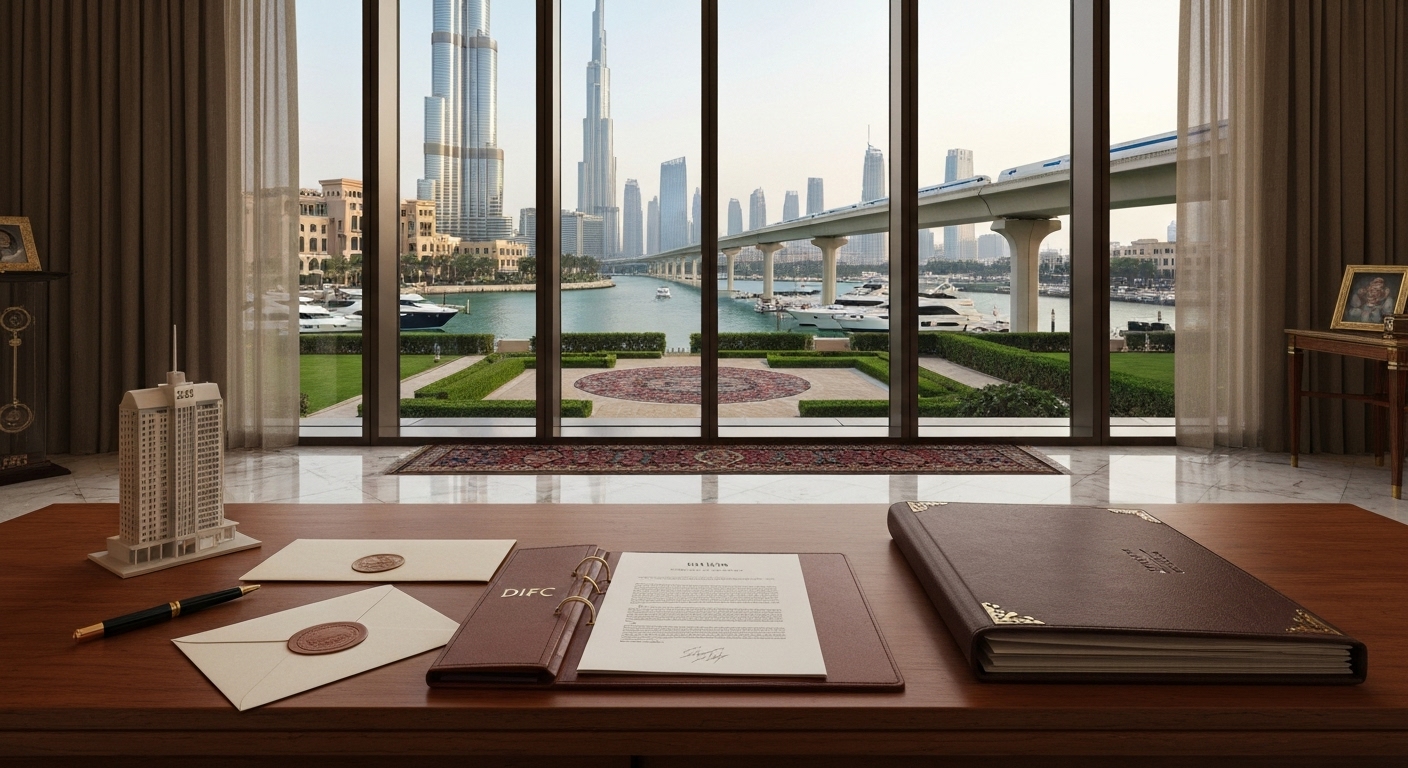For High-Net-Worth Individuals (HNIs) and their advisors, real estate in Dubai promises not just exceptional returns, but multi-generational security. Yet, with international investors’ unique requirements, prudent inheritance planning is essential for safeguarding and seamlessly transferring these valuable assets to beneficiaries. This guide breaks down what HNIs, especially expatriates and foreign nationals, need to know, focusing on advanced structuring options and estate planning strategies unique to Dubai.
Understanding Dubai’s Inheritance Laws for Property Owners
Dubai has emerged as a global haven for property investors, propelled by its favorable business environment, political stability, and cosmopolitan appeal. However, the legal landscape for inheritance is nuanced. By default, Dubai’s inheritance laws are historically influenced by Sharia principles, which can differ significantly from common law jurisdiction rules many expatriates are familiar with.
Key considerations include:
- Sharia law applies by default to Muslim estates, dictating fixed shares to heirs.
- Non-Muslim expatriates can now register wills under the DIFC Wills Service (Dubai International Financial Centre), permitting asset distribution as per personal wishes. RERA, DLD, Escrow Accounts
- According to Titan Wealth International, the absence of inheritance tax, capital gains tax, or personal income tax in Dubai enhances asset retention and succession planning compared to many competing global destinations.
Special Considerations for Expatriate and Foreign HNI Property Owners in Dubai
Expatriates and foreign nationals are cornerstone contributors to Dubai’s dynamic property market. For them, inheritance planning must account for cross-border succession rules, home country regulations, and the risk of family disputes.
HNIs from regions such as India and Africa, for instance, often face complex foreign exchange controls and disclosure obligations at home. For these groups:
- Specialized legal structures are advised to navigate both Dubai’s flexible inheritance options and home country regulations.
- Global mobility and privacy considerations can be crucial, especially where wealth declaration requirements differ.
Key Legal Structures for Robust Property Inheritance Planning
Achieving a seamless, tax-efficient succession demands tailored structures; simply making a will may not suffice for complex property portfolios or multi-jurisdictional families.
The primary solutions include:
DIFC Wills:
Offer legal certainty for non-Muslims in distributing Dubai assets as per their wishes.
DIFC Foundations:
Provide a sophisticated civil law alternative for asset protection and cross-generational wealth transfer.
Property Holding Companies:
Enable collective ownership, facilitate succession, and provide a robust framework for estate management.
Each tool comes with distinct benefits, addressing potential pitfalls in direct personal ownership, such as forced heirship or probate delays.
Leveraging DIFC Foundations for Enhanced Asset Protection and Succession
DIFC Foundations have revolutionized inheritance planning for Dubai’s HNIs. These entities combine the flexibility of common law trusts with the robust legal framework of the DIFC, one of the world’s leading financial centres.
Advantages for estate planning include:
- Legal Personality: Foundations can directly own and manage Dubai real estate, remaining outside personal probate.
- Asset Protection: Robust separation from personal assets shields property from creditors or external disputes.
- Customizable Succession: Structures enable bespoke succession planning, ideal for multi-generational asset transfer or philanthropic ambitions.
By shifting assets into a DIFC Foundation, families gain privacy, operational continuity, and flexibility while mitigating cross-border legal complications.
Note: For long-term residency opportunities that complement your estate planning, see the UAE Golden Visa.
The Role of Property Holding Companies in HNI Inheritance Strategies
Property holding companies serve as bespoke vehicles for managing large-scale or diversified property portfolios, perfect for HNIs with family members in different jurisdictions.
Benefits include:
- Streamlined Transfers: Ownership of the company (and by extension, the properties) is transferable via share inheritance, bypassing lengthy probate.
- Tax Optimization: Potential for enhanced tax efficiency, depending on the company’s domicile and international structuring.
- Family Governance: Shareholding structures facilitate family councils and oversight, providing clear guidelines for next-generation involvement.
Selecting the right jurisdiction for the holding company is pivotal; DIFC and JAFZA are leading choices for Dubai real estate.
Navigating Tax Implications and International Considerations for Inherited Property
According to a comprehensive analysis by dxbinteract.com, Dubai’s standout proposition is the absence of inheritance, income, and capital gains taxes, a major boon for wealth preservation. However, HNIs must consider:
1. Home Country Taxation:
Beneficiaries might face reporting or tax obligations in their own countries.
2. Double Taxation Agreements (DTAs):
Assess relevant treaties to avoid inadvertent tax liabilities.
3. Foreign Ownership Rules:
Certain home jurisdictions require approval for succession or have reporting requirements that must be managed proactively.
Comprehensive legal and tax advice is essential to avoid surprises and optimize the transfer of wealth internationally.
Steps to Create a Comprehensive Inheritance Plan for Your Dubai Property Portfolio
1. Audit Your Property Portfolio:
Map all Dubai real estate holdings and associated liabilities.
2. Engage Specialized Advisors:
Retain legal, tax, and estate planning experts with cross-border experience.
3. Select the Right Structures:
Consider DIFC Foundations, property holding companies, and formalize wills as needed for your situation.
4. Plan for Multi-Jurisdictional Heirs:
Factor in global asset locations and beneficiaries’ jurisdictions.
5. Document and Register:
Ensure all legal documents, structures, and wills are properly executed and registered with the Dubai Land Department or DIFC authorities as relevant.
6. Review Regularly:
Update your plan as family circumstances, asset locations, or laws change.
Final Thoughts: Secure Your Legacy in Dubai
According to a Bloomberg report, Dubai offers one of the most sophisticated environments for HNIs to build, enjoy, and pass on wealth. With progressive regulations, world-class legal structures, and unparalleled tax benefits, strategic inheritance planning is both a prudent and powerful investment in your family’s future. Work with specialized advisors to craft a tailored solution, ensuring your Dubai property legacy is protected for generations to come.




